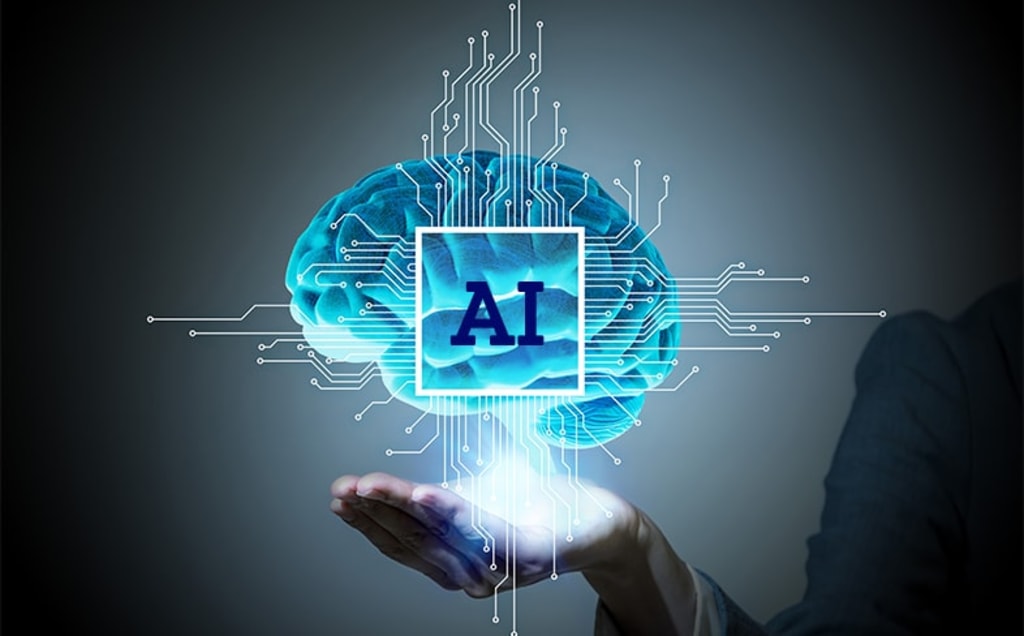Where do you see Artificial Intelligence in daily life?
What if I tell you that logical thinking isn't a human thing anymore?

That evening, as soon as you step into a wedding and finds out something wild constantly crossing over your heads and perhaps messing your hair a little too. Or compelling kids dumbfound by showing how your smartphone can actually talk and respond to your queries are more or less of the examples of scientific evolution that are now the part of our daily lives. While we take no notice of these things, but they actually represent how science has progressed and grown into colossal position by humans. The journey of these advancements that began from basic programmable digital computers in 1940’s, centered on the conceptual principle of mathematical reasoning that later inspired a handful of scientists to commence earnestly considering the possibility of building an electronic brain.
The idea behind the label “electronic brain” was initially planted by classical philosophers who attempted to describe the process of human thinking as the mechanical manipulation of symbols. The most primitive research into thinking machines was inspired by uniting together the notions that became prevalent in the late 1930s, 1940s, and early 1950s. Recent research in neurology had revealed that the brain was an electrical network of neurons that fired in uncompromising pulses. This gave rise to the efforts in 1940s and 50s, when a few of scientists from a variety of fields such as mathematics, psychology, engineering, economics and political science initiated to discuss the likelihood of creating an artificial brain. After immense hard work, the field of artificial intelligence research was founded as an academic discipline in 1956.
Artificial Intelligence or AI is the division of computer sciences that stresses upon the advancement of acumen machines in terms of intellect and functioning as same as humans. Artificial intelligence (AI), also called machine intelligence, is the man-made struggle in contrast to the natural intelligence displayed by humans. As the human brain functions by observing its environment and performing activities in accordance to that, likewise, any device that perceives its environment and takes actions that maximize its chance of successfully achieving its goals also became the ambition behind introducing this system. More precisely, the term artificial intelligence is often used to define machines (or computers) that mimic "cognitive" capabilities that a human mind possess, for instance, "learning" and "problem solving".
Now that I pay attention to AI by means of a subject of significant value, I realize AI has been the uproar since a long time. This also reminds me of one of my favorite TV series from childhood “Small Wonder” that revolves around the family of a robotics engineer who secretly creates a robot modeled after a human girl, then tries to pass it off as their adopted daughter, Vicki. On one side, the story is merely a comedy science fiction but as a matter of fact, it depicts the concept of AI (the robotic girl, Vicki) and explains it before it was a widespread gospel. As our day-to-day routines habitually involve usage of AI, programming without Artificial Intelligence could be troublesome because it involves quick and easy modifications without affecting the structure of a problem that is meant to be solved. The examples mentioned above are also the exhibition of some AI devices (Flying drones and Google Assistant/Siri/Alexa) that are now being commonly used by all of us.
Today’s Artificial Intelligence is sneaking into our regular survives by using the GPS navigation and check-scanning machines. A research conducted on Artificial Intelligence and its Role in Near Future verifies the utilization of Artificial Intelligence (AI) in business funds to the potential of various areas of daily life such as customer service, finance, sales and marketing, administration and technical processes in various sectors. One of the greatest examples of it is McDonald’s that is learning in the hopes of predicting what customers want before they decide. Since the food chain has gone through enormous crisis after a huge conversion of public from fast foods to healthier alternatives in the United States, their new emphasis is on advancement of their drive-troughs via AI by taking into account various factors like as the time of day, the weather, the popularity of certain menu items and the length of the wait. The practical application of using AI by McDonald’s has already begun as a Brooklyn drive-through with the new A.I. technology offers customers additional food suggestions based on their current orders as published in The New York Times.
Ever since AI begun to participate in regular activities, it is important to know that it has not arrived to replace human tasks, but to complement them and allow people to develop their potential and creativity to the maximum. Artificial Intelligence (AI) in healthcare is the practice of complex algorithms and software to emulate human cognition in the analysis of complicated medical data. The fundamental purpose of health-related AI applications is to examine relationships between prevention or treatment techniques and patient outcomes. As a research paper steered by International Journal of Engineering and Innovative Technology (IJEIT) on Artificial Intelligence and its Application in Different Areas strengthens the model of how to Improve Hospital Inpatient Care by using AI. For this purpose, Clinical decision support systems (CDSS) were found to be one of the first successful applications of AI, focusing primarily on the diagnosis of a patient’s condition given his symptoms and demographic information. Pathfinder is also an achievement of AI which used Bayesian networks to help pathologists more accurately diagnose lymph-node diseases. Moreover, AI has also been useful for computer-aided detection of tumors in medical images. Such approaches help in the diagnosis of various forms of cancer, and congenital heart defects.
Introduction of new technologies such as AI is a tool that will prove how efficiency of people can be improved, jobs could be created, and making the society safer for our future generation. Another display of AI in our life includes video games. Certainly, games are a popular application area for AI research. While board games have been central to AI research since the inception of the field, video games have during the last decade increasingly become the domain of choice for testing and showcasing new algorithms. At the same time, video games themselves have become more diverse and sophisticated, and some of them incorporate advances in AI for controlling non-player characters, generating content or adapting to players. A report conducted from Dagstuhl Seminar on Artificial and Computational Intelligence in Games: Integration concluded the computational techniques used to create, enhance, and improve the experiences of humans interacting with and within virtual environments that further supports the contribution of AI in gaming field.
Currently, massive research on Artificial Intelligence is meaningfully improving the world, in which majority of the tasks are being performed by the machines, while the role of humans is simply to look after them. Undeniably, over the next few years, digital efforts will no longer be considered as an out-of-the-way projects or initiatives in companies, but the adoption of technologies such as AI at all levels and processes of companies will be a reality to increase their competitiveness. In the future, intelligent machines will replace or enhance human capabilities in many areas. One of the key aspects with relevance to this is that the study in the area of Artificial Intelligence has given rise to the rapidly growing technology known as expert system. Furthermore, application areas of Artificial Intelligence is having a huge impact on various fields of life as expert system is widely used these days to solve the complex problems in various domains such as science, engineering, business, medicine, weather forecasting. Last but not the least, certain work still has to be done such as finding out whether a machine can think or not. (The Turing Test Approach). However, the areas where the technology of Artificial Intelligence has been active have seen an outstanding escalation in relationship with excellence and effectiveness and the technology and its applications will likely to have far-reaching effects on human life in the years to come. Nonetheless, as I conclude with my final words, I end it with a terrific assumption:
“I’m not scared of a computer passing the Turing test, I’m afraid if it intentionally fails it”. (Humor intended)
About the Creator
Hareem Syed
An undergraduate student by job, a writer by passion, an optimist and an explorer by nature.
Follow me on Instagram: @hareemsyeddd






Comments
There are no comments for this story
Be the first to respond and start the conversation.